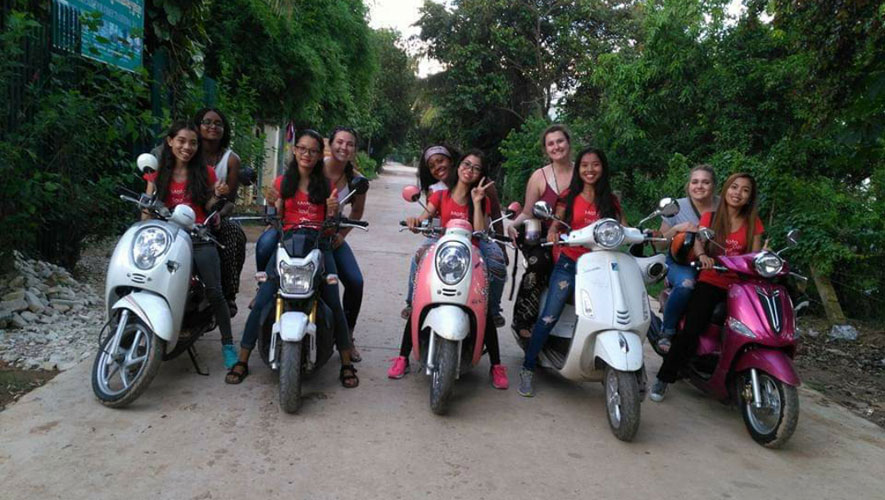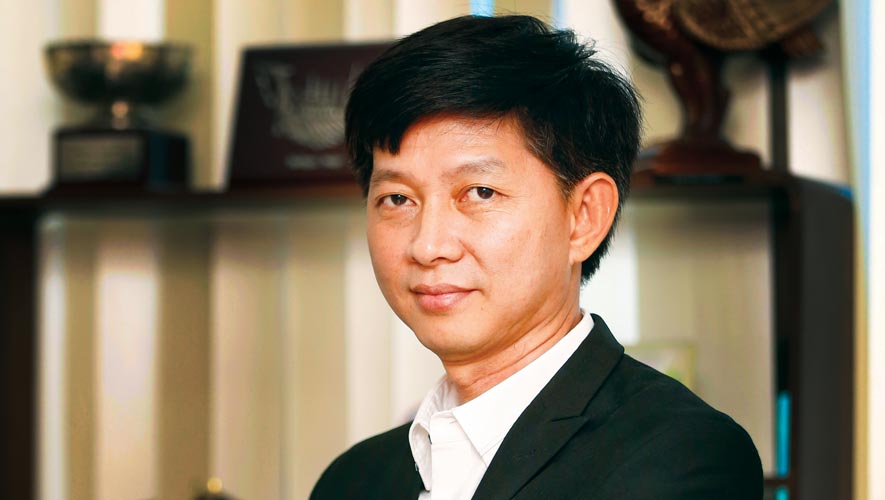Shocking precisely no-one, Cambodia scored “very poor” on the 2019 Sustainable Development Goals Gender Equality Index, limping in at 96th place out of 129 countries analysed.
For the latest Cambodian Business news, visit Khmer Times Business
The index was compiled by Equal Measures 2030 – a collective group of civil societies headed by Plan International which measures global progress on women’s rights and equality.
Despite a report from the International Labour Organisation (ILO) that highlighted the fact women run 65 percent of all businesses in Cambodia, an estimated 99 percent of them are micro-businesses. Often with just one or two employees, these women-run businesses hardly compare in terms of contributions to the economy made by medium and large companies, which are overwhelmingly owned and operated by men.
In a country where women make up 51.18 percent of the population, this is a failing with economic consequences, the ILO warns.
Determined to break away from the stultifying social norms that restrict women’s development in Cambodia is Lida Loem, co-founder of SHE Investments – an organisation focused on economically empowering women by developing their businesses in a sustainable fashion.
“Low-skilled, low-paid and discriminated against – the majority of women work in low-level employment and have to dedicate a lot to the family,” argues Loem.
The expectation that women are made for kitchens and kids is still prevalent here, with oppressive societal values still held widely around the Kingdom, but urban areas are showing greater signs of progress.
“Another barrier is women’s ability to network when they have a family. They’re not able to go out, to meet people or attend events. Instead they feel like ‘Oh I should be home. I should be with my baby. I should be with my husband’ but at the same time the men like to spend a lot of time with their friends while women stay home and look after the kids. That’s how we lose our connections and our confidence,” she says.
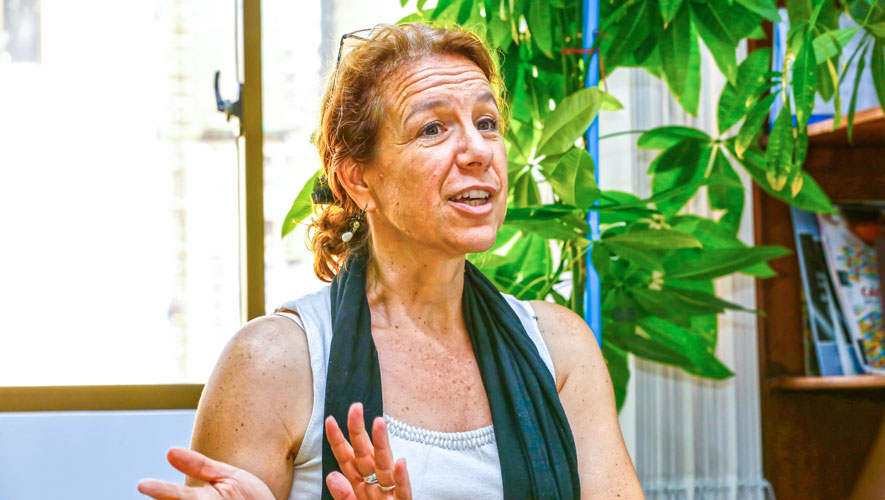
Chief of party, WE Act project
118 minutes a day
The ILO found that 91.3 percent of unpaid care responsibilities was carried out by women. The usual tropes of female subservience – cooking, cleaning, childcare – eat up 188 minutes of a woman’s day in Cambodia, compared with just 18 minutes of a man’s.
For Loem, the issue is entrenched in Cambodian culture – which systematically devalues girls and women, leaving them less able to compete with their male counterparts in education, experience and skills.
“School is more useful for boys than for girls,” is one of the many teachings of Chbab Srey, the cultural cornerstone that has shaped Cambodia’s attitude towards women for centuries. Along with equating being submissive and obedient to being a good wife, Chbab Srey further details doctrines prescribed to girls from an early age – doctrines that have long held back the development of women as skilled professionals.
Written in the 19th Century by King Ang Doung, Chbab Srey takes the form of a poem that instructs women on how to be pure and live up to archaic cultural ideals – it is a warped notion of purity that has left so many Khmer women behind, marring Cambodia’s economic development in the process.
“Cambodians continue to view it as a moral set of rules – more importantly, it was part of the national curriculum until 2007, so this is what they learned at school,” notes Sabine Joukes, a prominent gender equality advocate and chief of party at the WE Act project.
WE Act – “Women Entrepreneurs” Act – launched in March this year, marking the beginning of a five-year project managed by international NGO PACT and funded by USAID, which gave $10 million to ensure the project improves management skills, financial literacy and business acumen among women in the Kingdom.
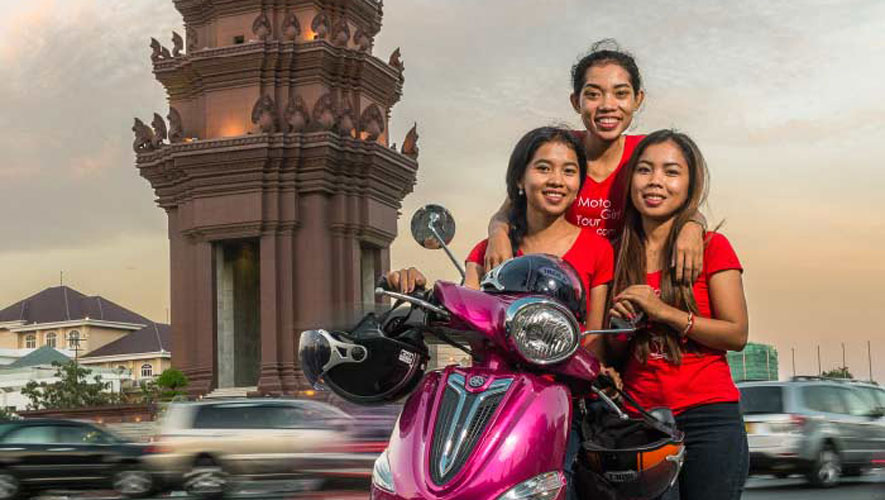
Education: key to opportunity
Despite having seen an enormous amount of change since first arriving in Cambodia in 1996, where Joukes recalls almost anyone with any level of education was a man, she says there’s still much to be done and cites a 2013 UN survey that found 95 percent of Cambodians still believed a woman must obey her husband.
“Today more women get a better education. We’re starting to see women in higher positions and our project is focusing on empowering women entrepreneurs, even the fact that there is a big group of women entrepreneurs, and not only your typical traditional home-based entrepreneurs, but also real women who have made it even in the international markets with the export of some products,” she says.
The story of how it came to this will be all too familiar to anyone with eyes in their heads. Girls in Cambodia typically receive less schooling – an average of 3.8 years for women versus 5.6 years for men, according to the ILO.
Dropout rates are higher among females, chiefly on account of early-age indoctrination – Chbab Srey imposes on women a belief that they must sacrifice their future, their education and ambition should the needs of the family demand it. Young girls working in garment factories to pay for their brother’s education is not uncommon – boys are simply a better economic bet for many Cambodian families.
“Often when girls drop out, it’s because their family cannot support them and girls often volunteer themselves – sometimes their parents must migrate to find work and so there is nobody to take care of the family. Usually the eldest girl will drop out to raise her brothers and sisters and so after that they don’t have the skills they need to develop further, so you can see how it becomes a big problem,” explains Loem.
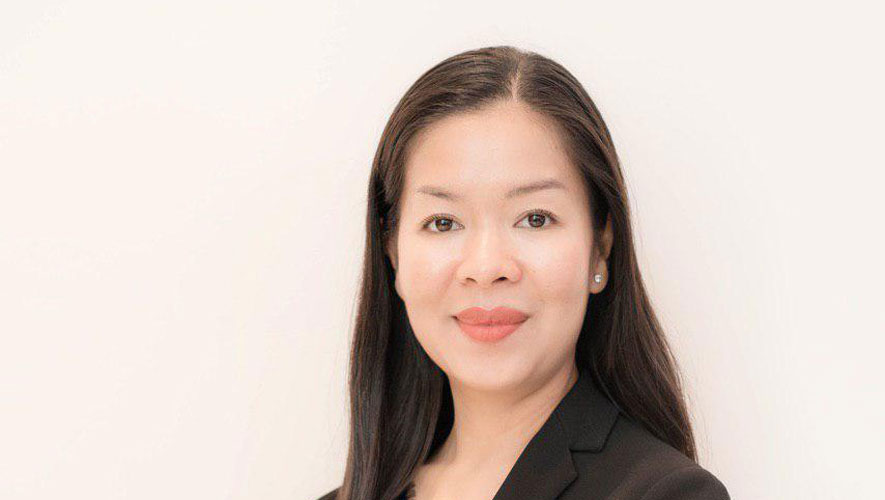
USAID recorded 11.9 percent of girls dropping out of primary school in 2011, compared with just 3.23 percent of boys. However the consensus among the women familiar with the subject interviewed by Capital Cambodia is that this is improving.
“There is a trend, I think, that more and more people are being educated to a higher level. They’re getting training in the workplace. They have the people to coach them. We read a lot of news. We watch TV – everything is becoming more accessible here, especially information,” says Kim Hoan Pheng, managing director of Two Way Public Relations – one of the more prominent women-led businesses in Cambodia.
Pheng’s career has taken her around the world. She was responsible for organising the 2012 Asean Forum in Cambodia, has met former US president Barack Obama and now runs a highly successful PR agency here in Phnom Penh. She feels more is being done now to foster innovation and success among women.
“These days, I join a lot of working groups for women – entrepreneurship forums – so I see a lot of women out there that are that are even more successful than me. I learned from them and I encourage the women starting out. I think more women are demonstrating their entrepreneurship,” she says.
Climbing the career ladder
The data is starting to tell a similar story, with the World Bank noting that the female share of senior and middle management jumped from a measly 16.7 percent in 2012, to 33.1 percent in 2016.
The World Economic Forum’s figures back this up. Where 1 is perfect equality and 0 is total imbalance, the level of gender equality among professional and technical workers in 2017 was recorded at 0.573 which then shot up to 0.746 in 2018.
Chea Renou is one such entrepreneur who, when faced with a personal crisis, gave up a career in accounting to take care of her family. Out of financial hardship, Moto Girl Tours was born – offering tourists an insightful voyage around Cambodia while perched on the back of a motorbike. The unique selling point is that all the drivers are women and speak good English.
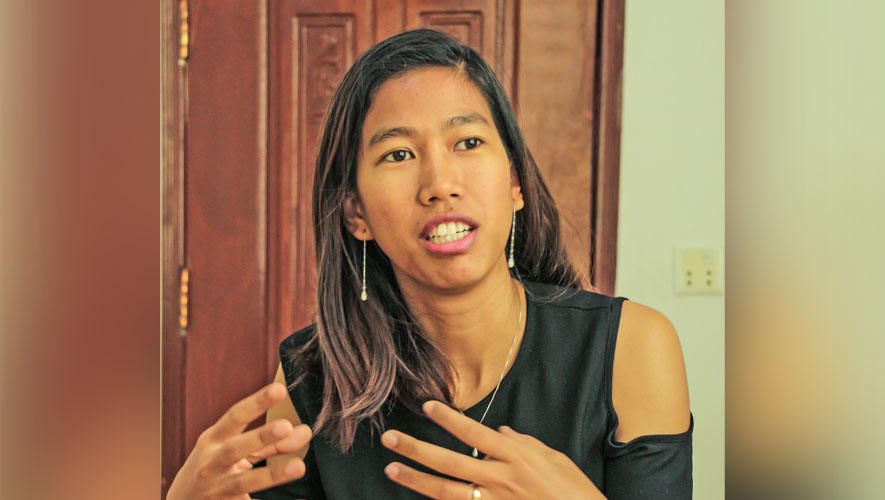
“I think it’s important to show that not only can women be tour guides, but also drivers,” explains Chea, who notes that there is often prejudice against female drivers and points to the lack of women working as taxi drivers as evidence.
“When they have work and get their own income, they can be confident and independent,” she says, hoping that Moto Girl Tours will offer more women the chance to take charge of their own finances through flexible employment.
Chea notes that there has been change over time, with many of her initial customers being foreign men – in part perhaps because of their marketing strategy that focuses on the youth and beauty of Moto Girl Tours guides. Now, she says, they are appealing more to female travellers.
“It’s been almost four years, but of course we have been through some difficult times. Sometimes we have been looked down on by people who see us taking foreigners around and sometimes customers treat us not so nicely, but only a few of them,” Chea explains.
Breaking down the barriers
The barriers that once kept women confined to Cambodia’s kitchens are slowly coming down and the opportunities for women in the workplace are opening up, but progress is – as progress so often is – limited mostly to the cities.
The playing field is not yet level, with the ILO estimating a 20 percent net wage gap between men and women in Cambodia. This, coupled with their concern over the 57 percent of women who are in what the ILO calls “vulnerable employment” highlights the need for a business case to be made for women-focused policies.
“One of the big challenges that we continuously hear is that women are not part of the business associations. Because the associations are mostly male, they meet in the evening and that’s where alcohol is consumed – so it’s already three things that don’t go very well with being a woman here,” laments Joukes, whose WE Act programme aims to give women the networking opportunities they have so far been denied.
The issue, she argues, is that even if education were improved, if economic opportunities were more plentiful and the social norms of Chbab Srey cast off into the annals of history, there is still a need to develop policy with women’s needs at the heart of it, because these differ wildly from the needs of men.
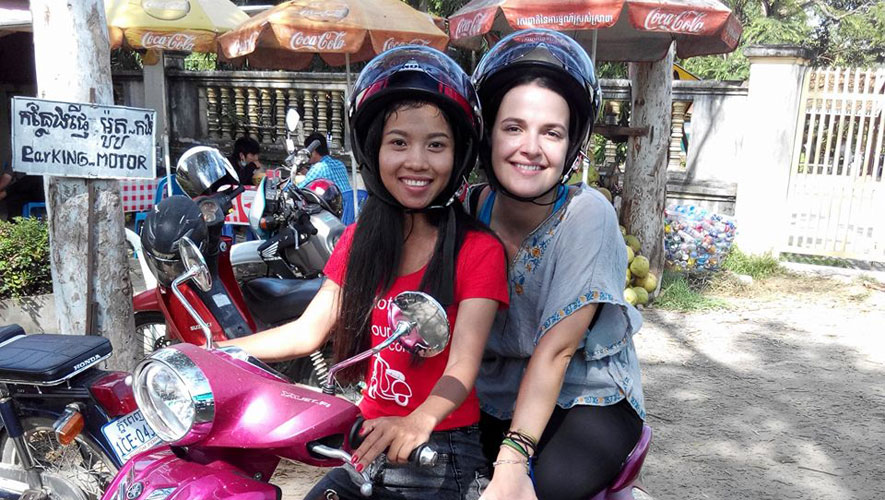
Stay positive, look long-term
“At all levels of the workforce and also with entrepreneurs, apart from your pure capacity and skill-building, in terms of business skills that you can apply to your business, it also affects, for example, things like your access to information, your confidence in approaching governance about your registration or your taxation etc.” she notes.
In 2018, the McKinsey Global Institute highlighted the value of gender equality in economic terms, with Asia and the Pacific being able to add $4.5 trillion to annual gross domestic product (GDP) by 2025, or 12 percent above business as usual, should it implement gender equality policies effectively. Cambodia, the study found, stands to gain $4 billion by 2025 if it follows suit.
For Joukes and Loem, there is a challenge in finding a balance between the approaches taken. The question of whether Cambodian women can trust in the Hun Sen administration to effectively implement gender-sensitive legislation is one worth asking.
WE Act has spent time and energy to establish how best to go about leveraging change, mapping out the various levers of power and how best they can be operated in order to achieve a better, fairer world for women.
“Are we going to put our effort and attention into female policies that may sound nice, but fail on implementation? Where this really becomes sticky is those informal taxations, which makes for unfair competition because more women run smaller businesses, they are more affected by those things,” says Joukes in reference to issues regarding payments to predominantly male-dominated law enforcement that enable women to run informal businesses.
“We see wonderful, absolutely stunning examples of really empowered young women who break all of what I’ve just said, who really go to the opposite side and who have supportive families and come up with great innovative ideas. They will be our beacons of light. Little by little, we will have more and more of those and that is what we need to support and nurture them,” she says.
SHE Investments has just taken on 60 new entrepreneurs – all of them women, all of them eager to prove themselves capable of competing with men.
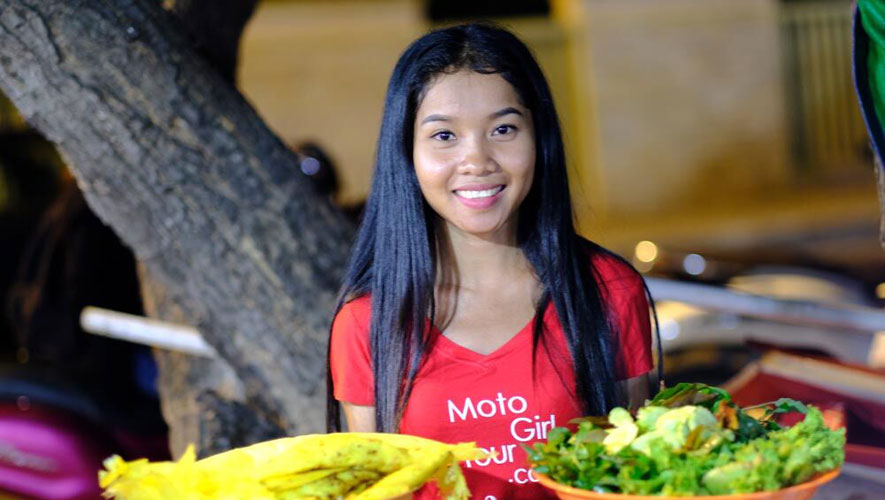
Loem explains that they came from across the country, to embark on incubator and accelerator programmes with SHE Investments, who will provide access to networks, finance and guidance to get these fledgling businesses off the ground.
“When we started SHE, we found that women owned more than 65 percent of all businesses in Cambodia, whereas men ran just 35 percent, but the income is split with 60 percent going to men and only 40 percent to women. I ask myself why is it like that? And I can see the problem – the knowledge, the experience, themselves; women just don’t get the opportunity to take those things as seriously as men.”


